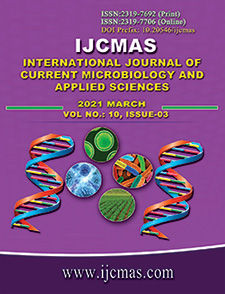


 National Academy of Agricultural Sciences (NAAS)
National Academy of Agricultural Sciences (NAAS)

|
PRINT ISSN : 2319-7692
Online ISSN : 2319-7706 Issues : 12 per year Publisher : Excellent Publishers Email : editorijcmas@gmail.com / submit@ijcmas.com Editor-in-chief: Dr.M.Prakash Index Copernicus ICV 2018: 95.39 NAAS RATING 2020: 5.38 |
A nursery experiment was conducted to evaluate the efficacy of different biological agents such as Paecilomyces lilacinus, Pochonia chlamydosporia and AM fungi on root knot nematode management in black pepper. The study revealed that all the biological agents were found to have potential to increase significant plant growth in terms of number of leaves and plant biomass. The maximum number of leaves per plant was recorded in P. chlamydosporia treated plants which was significantly different from untreated control followed by AM fungi and P. lilacinus. The maximum plant biomass (46%) was recorded in P. chlamydosporia and it was on par with AM fungi. The root knot nematode M. incognita alone recorded least bio mass of 21 g. The population of root knot nematode M. incognita in soil and roots were significantly lower in all biological agents treated cuttings than untreated control. Nematode population in soil, egg mass/g and adult female nematode/g was significantly reduced in P. chlamydosporia treated plants when compared to untreated control.
 |
 |
 |
 |
 |